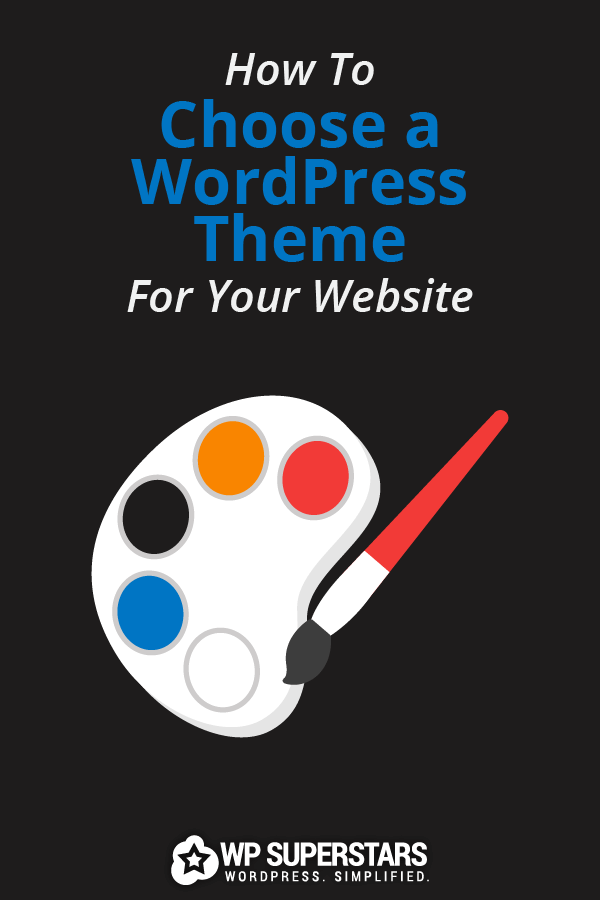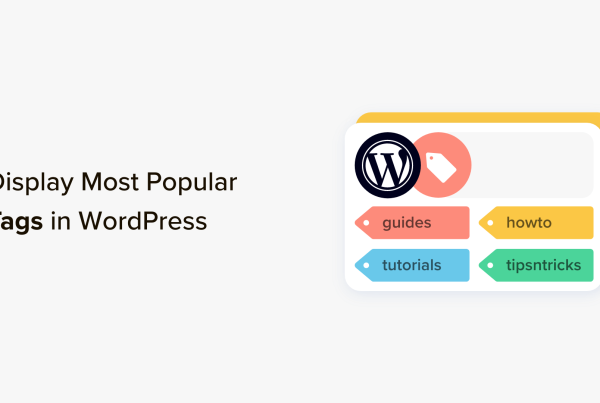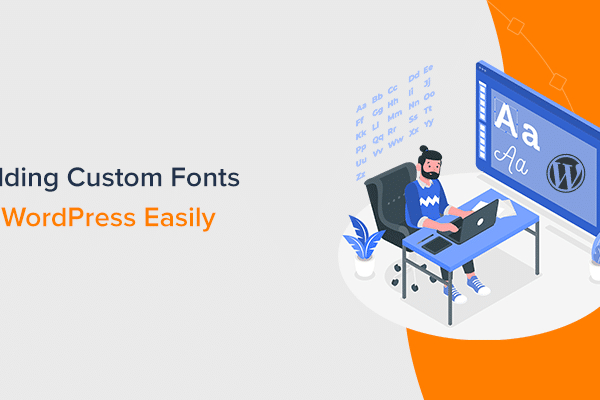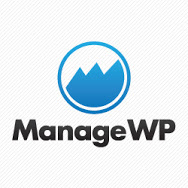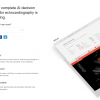A lot of newbies are
confused and can hardly identify the features that make a good WordPress theme
before checking out. It does not matter if you are going for a free WordPress
theme or a paid one; your choice will affect your WordPress site either negatively
or positively.
So how do you identify
the ones with great features? What are the parameters to check if you’ve made a
great choice? Should you factor in some particular elements? How about keeping
visitor expectations in mind?
These questions are answered
in this article and will provide you insight into how to choose a rockstar
theme.
So let’s get started.
Questions to ask yourself about your theme
Generally, the features
to look out for will differ depending on your website’s specific requirements and
the audience it caters to. Every website is not the same. However, here are the
fundamental questions to ask yourself before you settle on a theme.
#1: Do I have a general website or a niche website?
General websites are those that can
cater to the general public. Examples include websites created around the
following business ideas:
- Doctors & healthcare
- Coffee shops
- Hairdressers
- Architectural studios
- General blogs
Niche websites are catered to a specific subset of a general audience. Examples include:
- Car rental websites
- Real estate portals
- Specific directory portals (e.g. for
restaurants, jobs, etc.)
#2: Am I going to sell merchandise?
If you have the
intention of selling goods and running an ecommerce-like site; WooCommerce will
be a great option for you.
Pro-tip: Ensure the latest version of the WooCommerce plugin is compatible with the WordPress theme you are buying. Make sure the theme indicates support for WooCommerce in the description.
#3: What plugins align with my requirements?
Plugins are a useful tool that can bring out the best of your theme. For example, if you’re building an ecommerce site, there are chat plugins available to connect you with your customers.
You need to find the
plugins that suit you. Then ask the WordPress theme developer if the plugins
are supported by the Theme.
12 features a good WordPress theme should have
1. Visuals & design
While the choice of
design is subjective, it is a feature you don’t want to ignore. Choose a design
that can be visually appealing for a number of years.
Features to check
- The design should be intuitive and
provide the audience with a clutter-free browsing experience. - It should retain its look and relevance
for the next 2-3 years. - Theme that you select should reflect the
main focus of what your website is about.
2. SEO
Every website wants to boost its visibility and rank high on search engines. Thankfully, there are a lot of WordPress SEO tactics you can employ to do this.
With regards to your
theme, the one you choose should score at least 85 percent or more for Pingdom Tools
and GTMetric. It should also enhance the proper placement of the H1 to H6 tags
as well as support SSL. It should be compatible with some topnotch caching
plugins such as WP Super Cache and other SEO plugins like Yoast SEO.
Feel free to read up more about the importance of SEO and how to leverage it for your benefit.
Features to check
- CDN Support
- Cache Plugin Enhanced i.e WP Super
- 85%+ GTMetrix or higher Pingdom score
- Smart placement of H1 to H6 tags
- SEO Plugin enabled (Yoast SEO)
3. Compatibility of the logo size with the header
This is one of the
notable challenges designers have with the WP theme they purchase. Every
business has its logo in different sizes. You need to ensure the theme you are
buying has a placement for the dimension of the logo you want to set.
The surprising thing is
most themes don’t have this feature. They only provide one size for the logo
and that’s what you’ll get. This will distort your logo by making it too
narrow, too big or too small. It can even distort the spacing in your header
thereby making your site unusable.
If you’re not sure about
this feature, you can always ask the developer.
Features to check
- Can I set any dimension for my logo in
the header?
4. Integration of basic functionalities into the theme
Plugins are great to
have and can bolster the effectiveness of your website, however they shouldn’t
be relied on too much. Making sure that your WP theme has all of the features
in place, while minimizing the need of plugins can have a positive impact on
your as well as other user experience.
Some plugins are known to slow down your website, which can hamper SEO performance and user experience while on the site. When looking for a WP theme, try and find one that includes some of the necessary functionality without the need to rely on plugins.
Every website requires:
- Basic sliders depicting offers and
relevant info - Pricing Schedule that showcases the
price - A gallery that contains pictures of your
business location - Contact form for leads to connect
- A map that indicates your business
location - Provision for the writing of JS and
custom CSS codes - Domain migration- from demo to
production
These 7 basic features
are prerequisites with no exception on any website.
Some developers may
claim that additional functionality should be embedded in the plugin. Do you
really want to install extra seven plugins just to access basic features that
may eventually culminate into a compatibility issue? Another challenge is
updating all these plugins.
You should also ensure that the theme is compatible with any builders and additional tools you plan to use. For example, if you’re looking to build a strong landing page for the site, check the integration abilities with WordPress and your theme.
Once those features
come with the theme, you can be sure things will work well for the site.
Features to check
- Can set up a Contact Form without utilizing a third-party plugin
- Can set up Google maps without utilizing a third-party plugin
- Can set up Galleries without utilizing a third-party plugin
- Can set up Basic sliders or carousels without utilizing a third-party plugin
- Can provide you with KPI reports or analytics
- Can set up Pricing Tables without utilizing the third-party plugin
- Can write JS codes and custom CSS without utilizing a third-party plugin
- Provision of a migration tool without leveraging 3rd party plugin
5. Provision of top-notch sales support
You will notice this
after you have bought the WP theme. If the response time is more than 24 hours
consistently (aside weekends), then that’s a red flag.
On average, there has
to be an exchange of about 3 e-mails before getting to the solution. That means
you won’t arrive at that solution in 3 days.
If the developer
responds in less than 24 hours, that’s great. Not only that, but the response
must also resolve the issue directly.
If the support is being
outsourced, it may lead to a waste of time especially when the support team
does not work in the same office with the developer. They will waste time until
they are able to confirm the issue from the developer.
Features to check
- Do I receive a response within 24 hours
from the theme author? - Are the answers on point?
- Does the developer share the same office
with the support team?
6. System requirements
You need to check out
your WP theme requirements. Your focus should be on the minimum adaptation of
PHP as well as the PHP memory capacity. 256MB should be the maximum should
check out for while the minimum should be 128MB. But if you require more than
that, then you need to pick a theme that has a high limit.
Features to check
- What’s the PHP version required by the
theme? - What’s the amount of PHP memory needed
by the theme? 128Mb or below?
7. Review and ratings
One of the most
objective theme platforms that disallow developers from manipulating reviews is
Themeforest. Consistent 5-star ratings are not only about a quality product,
but it must also have excellent customer or user support.
If you have picked a WP
theme, then you will need to check what people are saying about it. Check how
the developers respond to bad ratings and reviews and look at the highlight of
the good reviews. In most cases, the longer the review, the better the theme.
If a buyer loves a
theme, he or she will spend quality time to include lengthy and passionate
feedback. In case the developer does not provide a believable reason for a bad
review, then you can take it as a red flag.
Not only that, but you
also need to differentiate between the verbal value as well as the objectivity
of the reviews. In most cases, 1-star feedback is given because of the
incompetence of the buyer. Some buyers can hardly provide a clear and concise
sentence. Some buyers even think a 1-star review means the best. Therefore,
don’t take them too seriously.
Nevertheless, it is
better if you purchase a WordPress theme with a 4.8 rating or above. These
factors in some amount of issues as there is no perfect theme. If you are able
to get a 4.8 theme, it means you can have any issue attended to by the support
team.
Features to check
- Is the review 4.8 or above (on
ThemeForest)? - What are the highlights of the bad
ratings? - What features are mentioned in the good
reviews? Are those highlights relevant to your requirements?
8. Date of release not less than 3 months
WP Themes are more or
less like your normal software. You need to write and test it to avoid errors.
At least, the first version needs to be tested. The test needs to be carried
out in different browsers, environments, on different hosting and OS platforms.
Testing takes time.
If you are purchasing a
WP theme that’s not more than 3 months in the market, you might be signing up
for frustration. In fact, your website will be buggy and you will lose your
content, time and money. The ideal age of a good WordPress theme is six months
or more. You don’t want to pay to be a tester. Therefore, it’s safer to go for
an old theme with great features.
Features to check
- Has the theme been in the market for
over 3 months? - Has the theme been in the market for
over 6 months? - Can you find a word such as a ‘bug’ in
the reviews or comments?
9. Responsiveness
Over 50 percent of
traffic to your website will come from mobile devices. Thus, you need to
purchase a responsive theme if you don’t want to scare your web visitors and
lose them to the competition. Nevertheless, responsiveness is not equal to
quality.
Sometimes, the theme
may look good on the desktop and awful on mobile devices. The fonts may be too
thick while the headings are positioned on the left instead of being centered,
etc.
Basically, the basic
styles should be set in a unique way to make provision for each breakpoint.
However, not all themes on the market presently have that as a built-in feature.
Features to check
- Is the design responsive?
- Can every style such as text-align, font
size, etc fit indifferently on tablets and phones?
10. Pricing
While this might be the
last thing you want to consider, you need to understand that you will be
spending considerable time on the site, at least between 10 to 40 hours. The
time you will spend developing a WP theme is a potential couple of business
hours, so buying a WordPress theme is a great way to save some cash.
The price of the
template could vary between $10 to $300 and does not in any way determine the
value or quality of the theme. Notwithstanding, you should only spend between
$20 to $200. Anything beyond this range is outrageous. You need to understand
that the price does not in any way determine the quality.
Feature To check
- Price ranges between $30 to $200
11. The theme should not be built on third party functionality
There are several
open-source systems such as underscore, redux and others. The truth is most of
the framework is not updated. Developers only make use of them to expedite the
development process or because they lack the understanding of how to create the
theme independently.
This is why they could
produce more WP themes in no time. What do you expect? The output will be
inferior and may not align with your requirements.
The first challenge is
purchasing an inferior product. The second challenge is a constant dependency
on the developer of the tool or plugin by the theme author.
When the theme is free
for instance or ridiculously cheap, the third-party developer will not be
motivated to work on the theme or even abandon it for something more rewarding.
Therefore, the theme author has no option but to abandon it as the code can no
longer be updated.
How can you create a
website that will extend beyond at least 3 years with this kind of issue?
The exceptions to this are plugins that
are not fundamental but only complementing user experience like the slider
plugins. You can easily replace them with something entirely different.
Feature to check
- No underlying third party
frameworks/tools/ that are not being created by the theme author
12. FAQs
It is important to
always check the frequently asked questions before purchasing a WP theme. This
is where the author provides an in-depth explanation of the features,
compatibility, plugins, and well as the system that the theme uses. There, you
will also find out if you will enjoy 24/7 support or not.
Feature to check
- Does the theme page include frequently
asked questions?
So if you are about
purchasing a WordPress theme, these 12 features will help you make some good
decisions. They will also prevent you from replacing the theme incessantly and
wasting money.
Be smart with your WordPress theme
Choosing the right theme for your
WordPress site can have a huge impact on its success.
It should complement your content in the
right way, be responsive across devices and make your website stand out amongst
the number of WordPress sites out there.
Be smart with your theme, taking all
these important factors into consideration before choosing the one that works
best. Don’t forget, if you change your mind with one theme, the platform offers
the flexibility for you to change it down the line.
